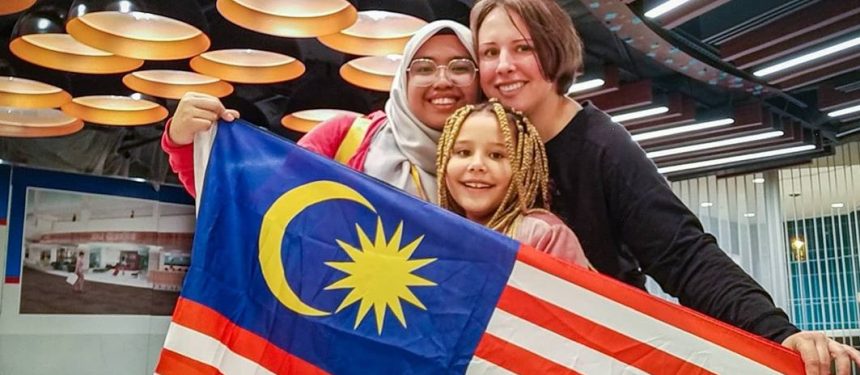Alliance for International Exchange members are helping to coordinate exchange program responses as up to 5,000 exchange visitors remaining in the US have been left in limbo due to the swift escalation of the Covid-19 crisis.
News and business analysis for Professionals in International Education
Have some pie!
US exchange orgs unite in support of students
 Organisations are supporting exchange students in the US. Photo: AFS-USA
Organisations are supporting exchange students in the US. Photo: AFS-USA By the end of March, Alliance members were flagging a looming humanitarian crisis. Exchange visitors typically reside in the US for a short time and work in seasonal jobs while undertaking cultural exchanges.
However, as seasonal businesses such as ski resorts shuttered due to the pandemic, many participants found themselves without employment and lodging.
“We were watching what could have become a major crisis were it not for the collective actions of participants, sponsors, and government agencies,” explained Ilir Zherka, executive director of the Alliance for International Exchange.
“There has been a remarkable ability to adapt and support each other. Organisations have had to move quickly under enormous pressure to ensure the safety and wellbeing of participants.”
Alliance members report committing over $2.1 million combined just in the past few weeks
Alliance members report committing over $2.1 million combined just in the past few weeks to support those caught in a foreign country when the pandemic hit.
At the beginning of the crisis, after assessing the situation, the majority of sponsor organisations decided that repatriation was the best course of action for exchange visitors in the US.
However, in a matter of days, countries around the world began temporarily closing their borders to travellers, including their own nationals. Alliance members reported over 5,000 exchange visitors seeking to return home.
The repatriation effort has been a full-time job for sponsors, according to the Alliance.
“When needed, AFS-USA provided repatriation flights at no extra cost to the participants and chartered flights when commercial flights were unavailable,” explained AFS-USA president Tara Hofman.
“Additional sponsors liaised with the US federal government, regional embassies, and consulates to provide humanitarian flights home.”
Hofman noted that AFS-USA also provided mental health resources, virtual intercultural activities, and online learning for program participants, tailoring these resources to those sheltering with host families as well as repatriated participants.
Another priority was ensuring that exchange visitors were in compliance with immigration laws. The Alliance, together with sponsors, implored the federal government to assist the US State Department’s Bureau of Educational and Cultural Affairs in responding quickly by automatically extending these visas by two months.
Another sponsor organisation helped participants secure other employment when their host employer ceased operations. They also paid the remaining rent for visitors who relocated within the US or returned home.
“They never let us feel that we are fighting this battle alone. Even though we [cannot] continue our training,” said Joyselle, an intern from the Philippines.
“[Our work place] is paying us [for] 36 hours per week so we can support ourselves here financially. Being away from our family in times like this is very hard, but there has been a tremendous amount of support [from our sponsor, who] has treated us like family.”
In addition, the International Institute of Education has created a new scholarship program after learning that many international visitors found themselves with no means to pay for food, shelter, or other basic living expenses.
They allocated $1 million from previous gifts to support stranded international students and aim to double that amount through fundraising.
Hostelling International USA has offered free accommodation for stranded visitors in seven major gateway cities. Host employers, schools, churches, and other local organisations are providing food, shelter, and support.
Study abroad sponsors also paid to get thousands of participants back to the US. Throughout this period, exchange visitors and study abroad participants supported each other and demonstrated considerable resilience.
However, Zherka noted that the process is not over yet, with some people still working to get home and sponsors and program supporters still working to help them.
“The spirit of cross-cultural collaboration seems to be alive and well in the United States, with sponsors, supporters, government officials, and participants demonstrating that spirit every day during this very chaotic and difficult time,” he added.
Still looking? Find by category:



How can we get high school exchange programs to work together rather than compete for host families and for spaces in the high schools? If the existing programs are different then advertise in one place how they are different so an educated decision can be made for one program over another. AFS, EF, ICE, Rotary, YES, FLEX, Congress-Bundiston, etc.
I believe international exchange is a way to build peace one person at a time, but within the US the attitude of “my program is better than your program” or “my program is not as expensive as your program” is hindering, not helping. We have to build in more cooperation and solidarity.